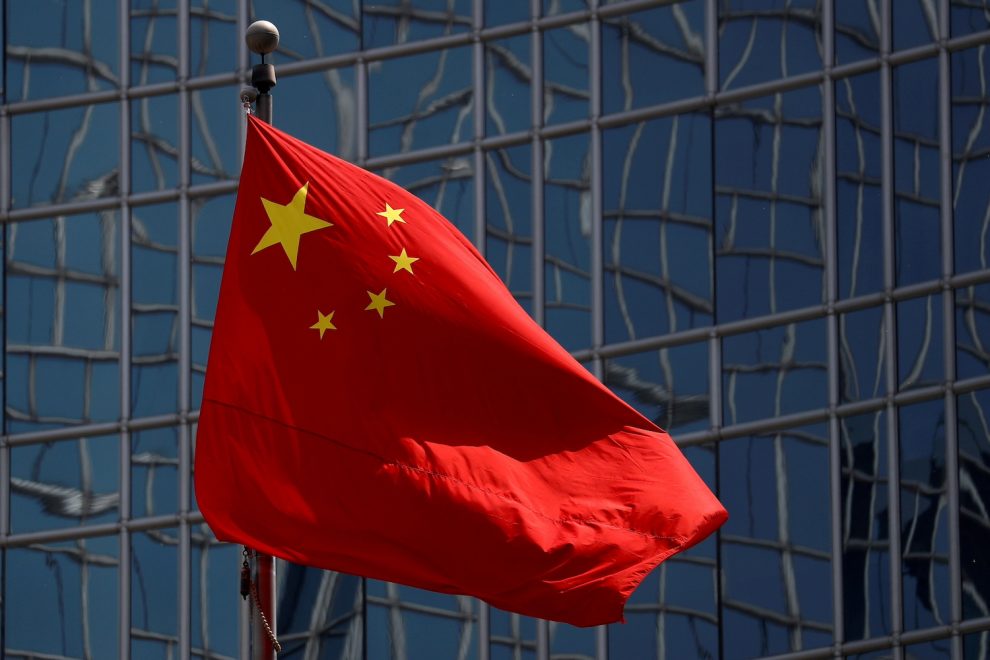After China’s year of unprecedented crackdowns, roiling markets and halting deals, bankers and lawyers expect tighter scrutiny to continue in 2022 but say clearer rules will give investors some certainty about the regulatory environment.
Over the past year, Beijing has clamped down on anti-monopoly violations, banned private tuition groups, reined in property developers’ debt binge, and made some offshore listings close to impossible.
Analysts expect those actions to extend into the new year with particular focus on data protection and deals that present national security risks while authorities also seek to step up control on private enterprise.
“Investors have been forced to consider a series of new regulatory risks over the last year, and those fears are not going to disappear any time soon,” said Logan Wright, director of China markets research at Rhodium Group.
“We’ve also seen some bureaucratic institutions successfully expanding their purviews in recent months, which broadens the range of potential regulatory concerns for investors next year,” he said.
Data Security and Capital Outflows
China in November elevated the status of the anti-monopoly unit of the State Administration for Market Regulation to the deputy-ministerial-level, a bureaucratic promotion that gives it more access to resources for probing deals.
In a sign of new measures to come, reports emerged last week that regulators are planning to ban online brokerages from offering offshore trading services to mainland clients due to concerns about data security and capital outflows.
Separately, Beijing has expanded its practice of taking minority stakes in private companies, once limited to news outlets, to firms possessing large amounts of key data, sources have said.
Alex Roberts, a Shanghai-based counsel at Linklaters, said regulators will also look deeper into the network security of big technology companies and expects greater overlap of data and antitrust regulators’ supervisory objectives.
Those regulatory moves come as China heads into a critical year with President Xi Jinping almost certain to secure a historic third term as Communist Party leader.
“The tightening (government) controls are unprecedented in the years since Deng Xiaoping gradually opened the economy,” Andrew Collier, managing director of Hong Kong-based Orient Capital Research, said.
Regulatory Uncertainty
The actions align with Xi’s economic agenda, which focuses on tighter party control of the private sector, more equal wealth distribution and stronger emphasis on morality in business.
“I don’t think the regulatory structure is yet complete. It will take a couple years to work out,” Collier said.
The regulatory uncertainty has made investors, especially private equity and venture funds, cautious where they put their money, resulting in longer due diligence and tougher valuation negotiations, bankers say.
As a result, many investors have shifted their focus to sectors seen as favoured by the government, such as semiconductors, new energy-related technology and areas that support China’s carbon reduction goals, they added.
New Offshore Listing Regime
Dealmakers are, however, expecting clarity on China’s newly proposed offshore listing regime that will involve data screening from the country’s powerful cybersecurity and securities watchdogs.
The Cybersecurity Administration of China (CAC) in the coming months will finalise draft rules that subject data-rich companies pursuing offshore listings to inspections if they handle data that concerns national security.
At the same time, the securities regulator is expected to step up scrutiny on Chinese companies that list overseas through variable interest entity structures, historically used by firms in sensitive industries, such as communications, as a way to skirt foreign investment rules.
“2022 will be the year when the detailed regulatory rules land,” said Chu Yang, a Hong Kong-based partner at law firm Davis Polk & Wardwell.
“There is a general expectation that regulatory uncertainty in this area would ease next year, especially given the much anticipated release of rules relating to red-chip listing in the coming months.”
- Reuters with additional editing by Jim Pollard
ALSO READ:
China Gaming Shares Plunge as Beijing Tightens Regulatory Crackdown
From E-Commerce to Education, China’s Season of Regulatory Crackdown
China’s Li Auto Shares Fall on HK Debut Amid Jitters Over Regulatory Crackdown
























